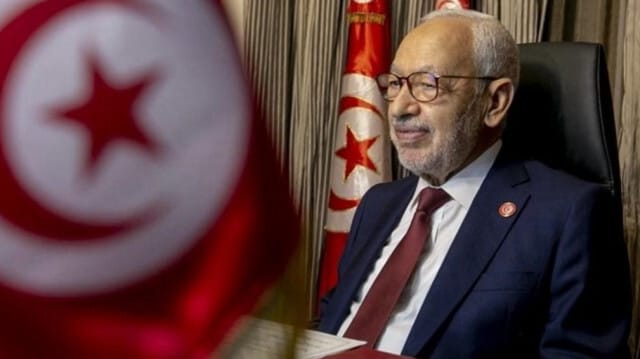Rached Ghannouchi, head of Tunisia’s Ennahdha Party and former parliament speaker, has initiated a hunger strike in solidarity with opposition member Jawhar Ben Mbarek, who is serving an 18-year sentence for alleged conspiracy against state security.
Ghannouchi’s legal team announced the move on Friday, noting that the strike aligns with Ben Mbarek’s ongoing protest, which began on October 29. The hunger strike aims to highlight the treatment of political detainees and draw attention to the broader issue of judicial independence in Tunisia.
At a press briefing held at the Republican Party headquarters in Tunis, the Coordination Committee of Families of Political Prisoners reported that several activists have joined Ghannouchi and Ben Mbarek in the hunger strike, expressing solidarity with those imprisoned under similar charges.
Republican Party Secretary-General Issam Chebbi has also started a hunger strike while in detention, advocating for the release of individuals arrested for exercising freedom of expression.
Ben Mbarek’s father, Izzeddine Ben Mbarek al-Hazeki, told reporters that his son’s health has seriously declined during the protest, though his morale remains strong. The family plans to join the strike on Saturday to further demand the release of political prisoners.
Amnesty International expressed serious concern on November 6 regarding Ben Mbarek’s condition, noting that he has been fasting for more than ten days.
The hunger strike comes amid ongoing political tensions in Tunisia, where dozens of politicians, journalists, activists, and former government officials have been prosecuted under charges of undermining state security. The opposition contends these actions constitute a broader campaign of intimidation led by President Kais Saied, who argues the arrests target individuals involved in plots against the state.
Ghannouchi’s strike marks a high-profile show of support for political prisoners and has drawn national and international attention to the state of political freedoms and judicial independence in Tunisia.



